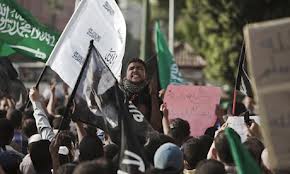Al Jazeera

Controversial article previously allowed rapists to avoid charges if they married their victims.
Morocco’s parliament has unanimously amended an article in the penal code that allowed a rapist to escape prosecution if he married his underage victim.
The amendment to Article 475 of the penal code, first proposed by the country’s Islamist-led government a year ago, was amended by lawmakers on Wednesday, parliamentary sources said.
The article in question made international headlines in March 2012 when Amina al-Filali, 16, was forced to marry a man who had allegedly raped her.
After seven months of marriage to the 23-year-old man, she committed suicide in 2012. Her parents and a judge had forced the marriage to protect the family honour.
The incident sparked calls for the law to be changed. The traditional practise of forced marriage can be found across the Middle East and in countries such as India and Afghanistan, where the loss of a woman’s virginity out of wedlock puts a stain on a family’s honour.
‘It’s not enough’
Right activists hailed the amendment, while stressing that much more remained to be done to promote gender equality, outlaw child marriage and protect women from violence in the North African country.
“It’s a very important step. But it’s not enough…. We are campaigning for a complete overhaul of the penal code for women,” Fatima Maghnaoui, who heads a group supporting women victims of violence, told the AFP news agency.
Global advocacy group Avaaz said it had handed a petition signed by more than a million people to Morocco’s parliament demanding that the government adopt promised legislation to combat violence against women.
Amnesty International said Wednesday’s amendment was a step in the right direction but “long overdue,” and urged a comprehensive strategy to protect women and girls from violence in Morocco.
It is true that this is just a detail compared to all of our demands but it had to be done.
Nezha Aloui, Union for Feminist Work
“It took 16-year-old Amina Filali’s suicide and nearly two years for the parliament to close the loophole that allowed rapists to avoid accountability,” said Hassiba Hadj Sahraoui, the rights group’s deputy regional director.
“It’s time to have laws that protect survivors of sexual abuse,” she added.
While the marriage age is officially 18 in Morocco, judges routinely approve much younger unions in the country.
Activists have called for a complete revamping of the country’s laws dealing with rape. However, in the case to the amendment of the existing article, only the language that stated the allowing of rapists to marry their victims to escape prosecution was deleted.
“It is true that this is just a detail compared to all of our demands but it had to be done,” said Nezha Aloui, of the Union for Feminist Work. “I salute the mobilisation and maturity parliament showed by voting unanimously.”
As in numerous other Arab countries, sexual harassment of women is commonplace in Morocco, despite the adoption of a new constitution in 2011 that enshrines gender equality and urges the state to promote it.
An official study published last month said nearly nine percent of Moroccan women have been physically subjected to sexual violence at least once.
More than 50 percent of violence against women is thought to take place within marriage, and marital rape is not recognised as a crime.
A bill proposed by the Moroccan government, threatening prison sentences of up to 25 years for perpetrators of violence against women, is still in the drafting stage.





